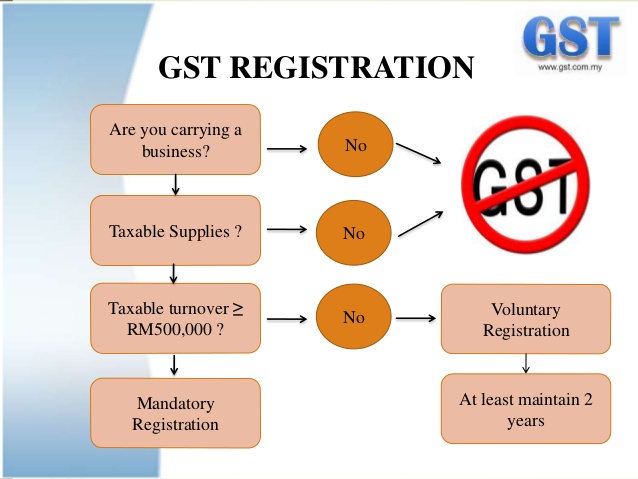Avoid Common Mistakes in Singapore GST Registration for Your Business
Avoid Common Mistakes in Singapore GST Registration for Your Business
Blog Article
The Ultimate Guide to Simplifying the GST Enrollment Process and Demands for Small Company Owners

Understanding GST Fundamentals
To comprehend the fundamentals of the Item and Solutions Tax (GST) system, tiny service owners have to first recognize its underlying concepts and implications. Under the GST regime, organizations are needed to register and gather tax on part of the government, ensuring openness and conformity.
One of the key concepts of GST is input tax credit history, which enables organizations to declare credit scores for tax obligations paid on their purchases. This device stops the cascading result of taxes and advertises performance in the tax system. In addition, GST is a destination-based tax, suggesting that the tax obligation is levied at the factor of consumption instead than the factor of origin. This makes sure fair distribution of tax obligation profits among states based on where the solutions or goods are eaten. Recognizing these basic concepts is crucial for local business proprietors to browse the complexities of the GST system and make certain conformity with the legislation.
Qualification Requirements for Enrollment
Having actually established a foundational understanding of GST principles, small company owners should now satisfy certain qualification standards to wage the enrollment procedure. In India, entities participated in the supply of items or solutions with an annual aggregate turnover exceeding Rs. 40 lakhs (Rs. 10 lakhs for unique group states) are called for to sign up for GST. In addition, particular businesses such as those associated with inter-state supply of products, casual taxable individuals, and those called for to pay tax obligation under the reverse fee system must sign up for GST regardless of their turnover. Moreover, companies that were registered under the previous tax regimen (BARREL, solution tax, and so on) are additionally mandated to register under GST. Nevertheless, agricultural companies that only supply generate out of key production are exempt from GST enrollment. It is essential for local business owner to thoroughly examine their qualification based on these requirements to guarantee compliance with the law and stay clear of any type of charges for non-compliance.
Documents Required for GST Enrollment

Simplified Enrollment Refine Steps
Adhering to the collection and verification of the requisite papers, the enrollment process for GST can be browsed through a series of streamlined steps created to facilitate reliable conformity for small organization proprietors. Upon successful verification, an Application Recommendation Number (ARN) is released, showing the completion of the GST registration process. By following these streamlined actions, tiny business proprietors can properly sign up for GST and guarantee conformity with tax policies.
Tips for Ensuring Conformity
To maintain governing adherence and functional stability, attentive oversight and aggressive procedures are essential in making sure compliance with GST requirements for small company owners. Small company owners must remain updated with GST regulations, submitting due dates, and any kind of adjustments in tax obligation rates to stay clear of fines and keep a good standing with tax obligation authorities. One vital idea for compliance is to maintain precise and detailed documents of all deals, including billings, receipts, and costs related to GST. Regularly integrating monetary documents with GST returns can assist in recognizing and remedying any disparities promptly. In addition, conducting regular inner audits or seeking specialist support can make certain that the company is following all GST guidelines appropriately. It is also vital for small company proprietors to spend in GST-compliant bookkeeping software application that can simplify the tax filing procedure and decrease mistakes. Participating in GST awareness workshops or training programs can enhance understanding and compliance with GST policies, eventually profiting the business in the long Click This Link run.
Conclusion
To conclude, small company proprietors need to comprehend the fundamentals of GST, satisfy over here the eligibility criteria, gather necessary records, and adhere to the streamlined enrollment procedure actions to make certain compliance. By simplifying the GST registration process and requirements, little service owners can avoid fines and run their organizations efficiently within the legal framework - Singapore GST Registration. It is important for local business owners to remain certified and informed with GST laws to preserve an effective service operation
Little business proprietors seeking GST registration must guarantee they collect and submit the essential files to finish the registration procedure efficiently. The records required for GST enrollment generally consist of proof of organization registration or unification, PAN (Irreversible Account Number) card of the company entity, address and identity proof of the promoters/partners/directors, photos, address proof of the location of service, bank account declarations or terminated cheques, and consent kinds. Attending GST understanding additional info workshops or training programs can boost understanding and compliance with GST policies, eventually profiting the business in the long run.
By streamlining the GST enrollment procedure and requirements, little organization owners can avoid charges and run their organizations smoothly within the legal framework. It is vital for tiny business owners to stay certified and informed with GST policies to preserve an effective organization procedure.
Report this page